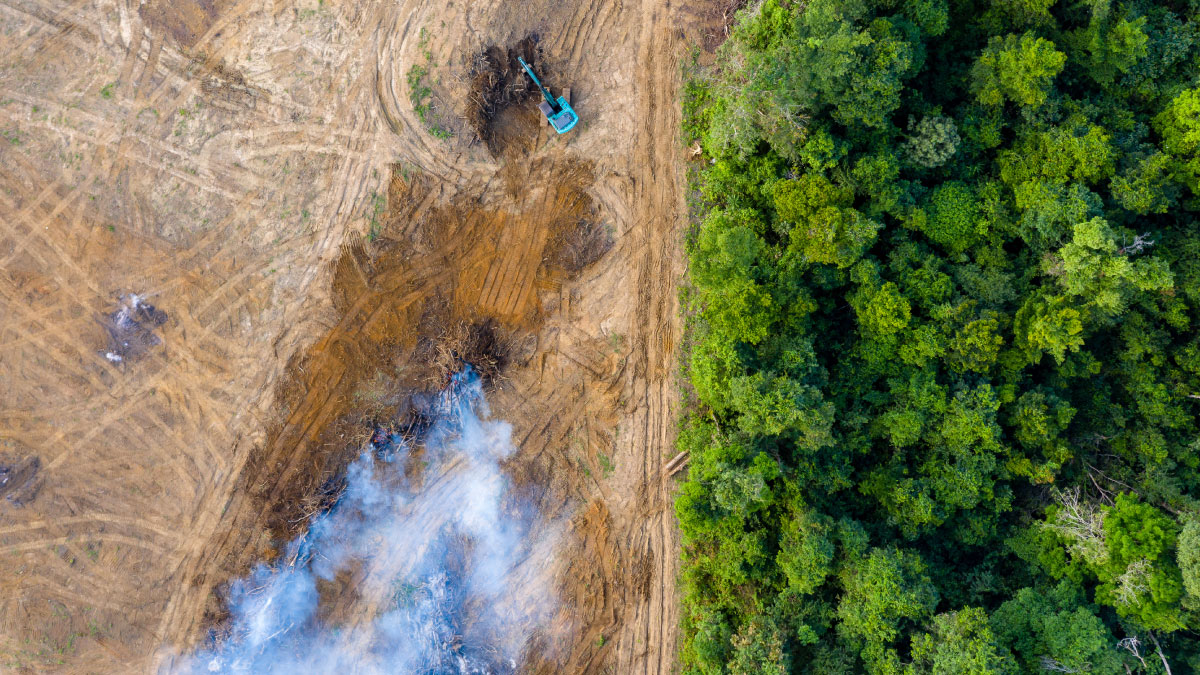A new call to action urges countries to make BioTrade a lever for recovery and resilience in the wake of the pandemic.

Aerial view of rainforest being removed for palm oil and rubber plantations / ©whitcomberd
At the first‑ever global summit dedicated to biodiversity held virtually on 30 September, various leaders said the COVID-19 pandemic is an opportunity for countries to put bold and ambitious environmental action at the heart of their post‑coronavirus economic recovery strategies.
One of the tools at countries’ disposal is BioTrade – the collection, production, transformation and commercialization of goods and services derived from biodiversity under BioTrade Principles and Criteria, a set of guidelines that emphasize environmental, social and economic sustainability.
Members of the UNCTAD-led BioTrade Stakeholders Steering Committee have issued a call to action urging countries to tap BioTrade for a better recovery from the pandemic, as the conservation and sustainable use of biodiversity can create jobs and economic growth while protecting the planet.
“Linking trade, biodiversity and sustainable development is a compulsory pathway towards more resilience at community, private sector and, ultimately, national levels in post-COVID-19 recovery efforts,” said UNCTAD economic affairs officer Lorena Jaramillo.
BioTrade for recovery and resilience
UNCTAD’s BioTrade Initiative promotes legal, traceable and sustainable trade in biodiversity-based goods and services in line with the objectives of the Convention on Biological Diversity (CBD) and the Convention on International Trade in Endangered Species of Wild Fauna and Flora (CITES), among others.
The BioTrade partners and other actors have called on countries to foster a balanced relationship between post-COVID-19 economic recovery policies and the different dimensions of sustainable development.
We urge this to be done through the conservation, restoration and sustainable use of biodiversity and building socioeconomic benefits and livelihoods, particularly in rural communities,” their joint statement reads, in part.
According to the signatories, this would contribute to building a better, healthier and sustainable future for all: countries, businesses, communities and people.
The actors emphasize that the sustainable use of biodiversity and the trade in its derived products and services are closely linked to building sustainable livelihoods.
“Biodiversity is a main source of food security and household income that ensures the livelihoods of indigenous people and rural communities. It is also the centre of biodiversity-based companies,” they say.
Avoiding future pandemics, strengthening action
The statement notes that “trade in biodiversity-friendly sourced products and services is an essential factor to reduce the risk of emergence and spread of zoonoses and hence the risk of future pandemics in a post-COVID-19 world.”
The statement urges countries to strengthen actions to stay on track towards achieving the UN Sustainable Development Goals, the aims of the post-2020 global biodiversity framework and the Paris Agreement on climate change.
Countries should promote the sustainable trade of biodiversity-based products and services under fair and equitable benefit sharing schemes, according to the statement.
The members state that economic incentives for biodiversity conservation, restoration and sustainable use, such as BioTrade, have a crucial role in a post-COVID-19 recovery phase.
Such initiatives can directly contribute to curbing and halting biodiversity loss, deforestation and habitat conversion, polluting activities and illegal wildlife trade, they said.
The members reaffirmed that UNCTAD’s 2020 BioTrade Principles and Criteria and related tools and standards can help countries to develop sustainable biodiversity-based sectors and businesses, and shift towards local economic development through sustainable trade.


